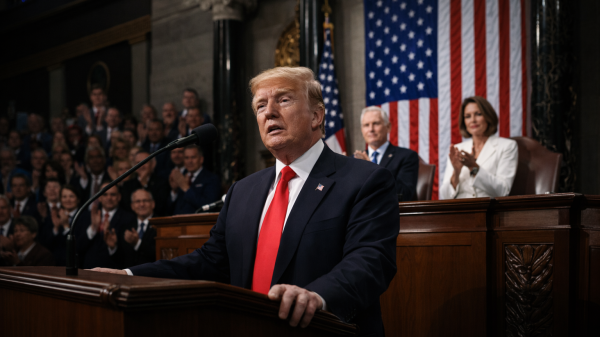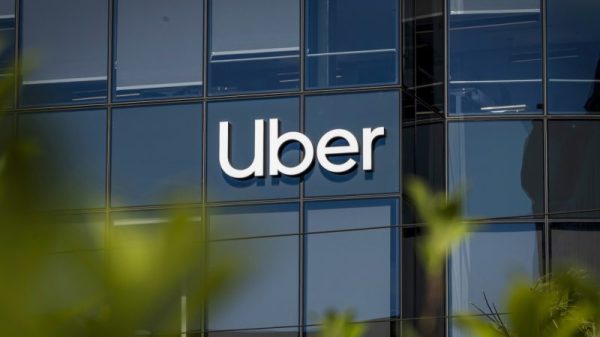Rachel Reeves, the UK’s first female chancellor and former Bank of England economist, will unveil her second budget on Wednesday amid mounting fiscal and political pressure.
After raising £40 billion through tax increases last October—the largest in postwar history—Reeves now faces a £22 billion gap in the public finances triggered by reversals on welfare cuts, higher borrowing costs, and downgrades to productivity forecasts.
Government sources suggest Reeves will turn to a mix of indirect, politically palatable tax measures without breaching Labour’s manifesto promise not to raise income tax, national insurance, or VAT rates for “working people.”
The headline-grabbing income tax hike flagged in early November has been ditched, replaced by a potential two-year extension of the income tax threshold freeze (fiscal drag), higher council taxes for top bands and “mansion tax” levies, and new limits on pension salary sacrifice schemes.
Budget pivots as fiscal forecasts improve
The drama has played out in full view of Westminster and markets.
Just weeks ago, the OBR’s downgraded economic outlook and failed welfare cuts had pushed the estimated fiscal shortfall as high as £35 billion-£40 billion, with speculation running wild over whether Reeves would break promises and hike core tax rates.
Improved wage data and stronger tax receipts recently narrowed the gap, prompting a sharp government U-turn and dropping the expected scale of tax rises to about £20bn.
Rather than broad tax hikes, Reeves is expected to extend the income tax threshold freeze until 2030, raising £7.5 billion annually and shifting a growing number of earners into higher brackets.
Additional revenue measures may target wealthier households, including a new “mansion tax” on homes worth over £2 million and a cut to the annual ISA savings limit from £20,000 to £12,000, which critics argue will hit middle-income savers.
Salary sacrifice schemes are likely to face new caps—potentially £2,000 per year—reducing pension tax benefits for higher earners and bringing in modest revenue.
The chancellor is also considering a “landlord tax,” applying National Insurance to rental income, widening the tax base while technically keeping rates stable for “working people”.
Political risks and market nerves
Reeves must walk a fine line.
Stealth tax rises, like fiscal drag and targeted levies, may seem politically safer. Still, as recent history shows, concentrated tax hikes can provoke powerful opposition.
Previous plans to trim winter fuel payments for pensioners and disability benefits met fierce resistance within Labour ranks, forcing U-turns and leaving fiscal consolidation goals in doubt.
Private equity and investor sentiment have swung dramatically, with bond markets alert to the fragility of the OBR’s improved but “minimal” fiscal assumptions.
At £15 billion, Reeves’ proposed buffer is the slimmest of any budget in recent years, amplifying risks that any negative surprises—such as slowing growth, more spending, or lost revenue—could quickly erase her margin and trigger further fiscal crises.
Structural challenges: debt, growth, and spending
Britain’s fiscal challenges are deep-rooted.
Public debt has tripled since 2000, and the tax burden—already on track for the highest since the late 1940s—will rise further under Reeves’ consolidation strategy.
Public spending approaches £1.34 trillion annually, dwarfing post-war averages, yet public satisfaction with key services like the NHS and social care remains low.
Reeves will reaffirm commitments to reduce debt, cut NHS waiting lists, and address the cost of living.
Expected consumer relief includes keeping rail fares and prescription charges frozen, cutting the VAT on energy bills, and possibly scrapping green levies on electricity.
She may also lift the two-child benefit cap, a move with significant political resonance.
Yet, on growth, Reeves faces especially stubborn headwinds. UK GDP growth since the financial crisis averages less than half the pre-2008 rate, and the OBR’s latest revision flags bleak prospects for improvement.
In attempting debt reduction almost entirely via tax rises, Reeves is bucking academic consensus—Harvard studies suggest that spending cuts, rather than tax hikes, are essential for successful and lasting fiscal consolidations.
Will it be enough for markets and business?
Investor confidence remains shaky. With the Chamber of Commerce and leading business groups warning that “bruised firms are not ready for another budget battering,” the upcoming budget could prove a defining test for Keir Starmer’s government.
Markets are expected to scrutinise not only the headline fiscal tightening but also Reeves’ ability to secure a stable political coalition in support of her measures.
A backbench rebellion earlier this year scuppered £5 billion in planned welfare cuts, underlining the threat of internal division.
Unlike previous chancellors, Reeves is forced by circumstances to rely nearly exclusively on tax rises.
The risk: further undermining incentive for work and investment, slowing growth, and adding complexity to the overall tax system.
While politically expedient, this path may offer only short-term relief, risking another round of budget headaches if growth stalls or deficits widen.
Outlook: Short-term fixes, long-term questions
Reeves’ budget will almost certainly fail to resolve Britain’s fiscal position fully.
The scale of debt, complexity of the tax system, and persistent growth weaknesses defy quick solutions.
The chancellor’s consolidation strategy will win her political breathing room, but the bigger decisions over spending, state size, and economic renewal will wait for future parliaments.
As the OBR releases new forecasts and market reactions unfold, the question will be whether Reeves can persuade investors and MPs that the UK’s financial trajectory is truly turning.
If not, markets could soon price in further fiscal risks—reviving familiar debates about Britain’s status as a safe haven among major advanced economies.
Britain’s budget drama is far from over. Reeves’ second act will set the stage for years of economic debate to come.
The post UK budget preview: Rachel Reeves faces moment of truth appeared first on Invezz
























